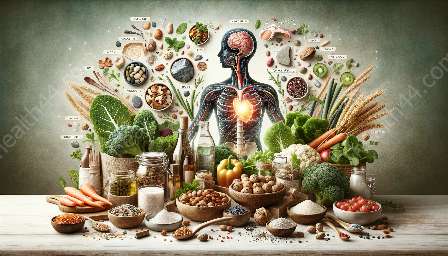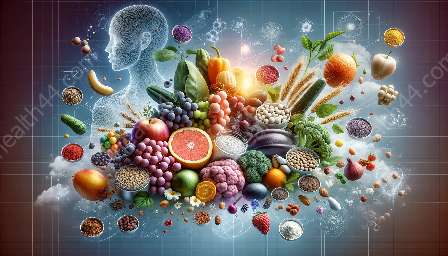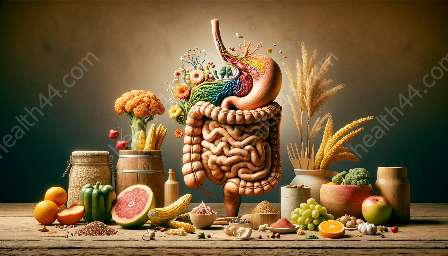Minerals are essential nutrients that play a crucial role in maintaining overall well-being. They are indispensable for numerous bodily functions and are integral to maintaining good health. In this comprehensive guide, we explore the significance of minerals in nutrition and their impact on health. We delve into mineral-rich foods, their benefits, and provide practical tips for maintaining a balanced diet.
The Importance of Minerals in Nutrition
Minerals are inorganic substances that are vital for numerous physiological processes, including bone development, muscle function, fluid balance, and energy production. They are crucial for maintaining a strong immune system, supporting healthy growth and development, and facilitating various chemical reactions within the body. Although required in smaller amounts compared to macronutrients such as carbohydrates, proteins, and fats, minerals are no less important in supporting overall health
There are two main categories of minerals: macro-minerals, which are required in larger quantities, and trace minerals, which are needed in smaller amounts. Both categories are essential for optimal health and well-being.
Key Minerals and Their Functions
Several key minerals play vital roles in maintaining health and supporting various bodily functions. These minerals include:
- Calcium: Essential for strong bones and teeth, muscle function, and nerve transmission. It also plays a crucial role in blood clotting and regulating heart rhythm.
- Magnesium: Important for muscle and nerve function, energy production, and the synthesis of DNA and proteins. Magnesium also contributes to bone health and supports the immune system.
- Potassium: Necessary for maintaining proper fluid balance, transmitting nerve impulses, and supporting muscle contractions, including those of the heart.
- Sodium: Critical for maintaining fluid balance and regulating blood pressure. It is also essential for nerve function and muscle contractions.
- Iron: Vital for the production of hemoglobin, the protein in red blood cells that carries oxygen throughout the body. Iron also supports energy metabolism and immune function.
- Zinc: Important for immune function, wound healing, and DNA synthesis. It also plays a role in cell division and growth.
- Iodine: Essential for the production of thyroid hormones, which regulate the body's metabolism and support normal growth and development.
- Selenium: Acts as a powerful antioxidant, helping to protect cells from damage caused by free radicals. Selenium also supports thyroid function and may play a role in reducing the risk of certain chronic diseases.
Mineral-Rich Foods and Their Benefits
Consuming a varied and balanced diet that includes mineral-rich foods is crucial for meeting the body's mineral requirements. Some foods are particularly rich sources of specific minerals, and incorporating them into your diet can offer numerous health benefits.
Calcium-Rich Foods
Foods rich in calcium include dairy products such as milk, cheese, and yogurt, as well as fortified plant-based milk alternatives. Leafy green vegetables, tofu, and sardines with bones are also good sources of calcium. Consuming these foods supports bone health, muscle function, and overall well-being.
Magnesium-Rich Foods
Good sources of magnesium include nuts, seeds, whole grains, leafy green vegetables, and legumes. Incorporating these foods into your diet can help support muscle and nerve function, promote energy production, and contribute to bone health.
Potassium-Rich Foods
Fruits such as bananas, oranges, and avocados, as well as vegetables like spinach, sweet potatoes, and tomatoes, are excellent sources of potassium. Consuming these foods supports proper fluid balance, nerve function, and muscle contractions.
Sodium Considerations
While sodium is essential for the body, it is important to consume it in moderation. Processed and packaged foods are often high in sodium, so it's advisable to limit their consumption. Instead, focus on incorporating whole, minimally processed foods and flavoring meals with herbs and spices.
Iron-Rich Foods
Good sources of iron include red meat, poultry, fish, lentils, beans, tofu, and fortified cereals. Consuming these foods supports the production of hemoglobin and helps maintain energy levels and overall well-being.
Zinc-Rich Foods
Zinc can be found in foods such as oysters, beef, pork, chicken, legumes, and nuts. Including these foods in your diet supports immune function, wound healing, and normal growth and development.
Iodine and Selenium Sources
Foods rich in iodine include iodized salt, seafood, seaweed, and dairy products. Selenium can be found in foods such as Brazil nuts, fish, poultry, and eggs. Incorporating these foods into your diet can help ensure proper thyroid function and protect cells from oxidative damage.
Practical Tips for Maintaining a Balanced Diet
Ensuring that your diet provides an adequate supply of essential minerals is crucial for maintaining overall health. Here are some practical tips to help you maintain a balanced diet rich in essential minerals:
- Variety: Aim to consume a wide variety of foods to ensure that you obtain an array of essential minerals. Including fruits, vegetables, whole grains, lean proteins, and healthy fats in your diet can help you meet your mineral requirements.
- Portion Control: Be mindful of portion sizes, especially when consuming foods high in certain minerals such as sodium. Practice moderation and balance to ensure that you meet your mineral needs without overconsumption.
- Go Natural: When selecting foods, opt for natural, unprocessed options. Whole foods such as fruits, vegetables, lean meats, and dairy products often contain a wide array of essential minerals without added artificial ingredients.
- Read Labels: When purchasing packaged foods, read the nutrition labels to identify their mineral content and select options that are lower in added sugars, sodium, and unhealthy fats.
- Seek Professional Guidance: If you have specific dietary requirements or health concerns, consult a registered dietitian or healthcare professional for personalized advice on meeting your mineral needs.
Impact of Minerals on Overall Well-Being
The presence of adequate minerals in the body is vital for maintaining overall well-being. From supporting bone strength and energy production to regulating fluid balance and promoting immune function, minerals have a profound impact on health. By consuming a balanced diet that includes mineral-rich foods and implementing practical tips for maintaining nutritional adequacy, individuals can optimize their mineral intake and support their overall well-being.
Understanding the significance of minerals in nutrition and health empowers individuals to make informed choices about their dietary habits and lifestyle, ultimately contributing to a healthier and more vibrant life.




























